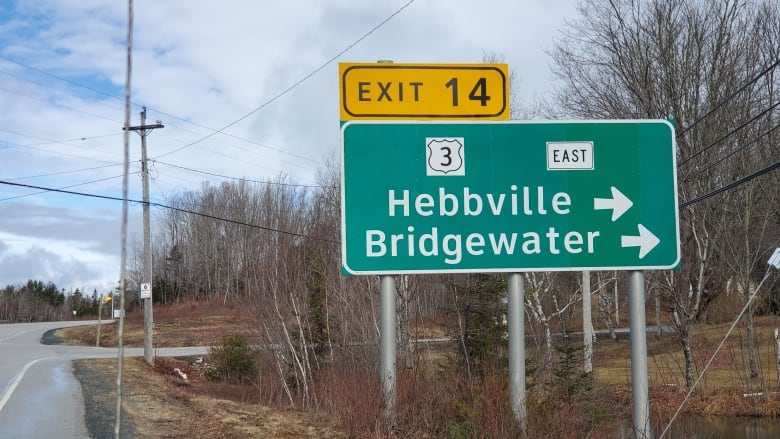N.S. school bus outfitted with 2-metre stop arm to deter illegal passing
Pilot project launched after 178 violations recorded in South Shore region last year

A new pilot project on Nova Scotia's South Shore is tackling the issue of student safety, one school bus at a time.
Instead of the usual stop sign that pops out during a pick-up or drop-off, one school bus in the South Shore Regional Centre for Education now has a two-metre metal arm that swings out into the next lane of traffic to deter drivers from passing.
The arm is equipped with two stop signs and flashing lights, and costs about $5,500.
"We think it will be highly visible to anyone coming up to our school bus," Denise Crouse, transportation co-ordinator with the SSRCE, said Monday.
"And really at the end of the day, we want to increase student safety, and we feel that this is a project that's going to help us do that."

Drivers in Nova Scotia are forbidden from passing a school bus when it has stopped and its red lights are flashing, an indication it is picking up or dropping off students.
The school bus serving Hebbville, N.S., was chosen for the pilot because it had the highest number of red-light violations last year, where drivers disregarded the flashing lights. Cameras installed on SSRCE school buses recorded 178 violations across the region.
"Each time a driver passes a school bus, a student who's getting on or off the bus has the potential of getting hurt," said Paul Ash, regional executive director of the SSRCE.
Ash said the transportation department will compare data from before and after the stop arm was installed, which will determine whether, and how, the pilot could be expanded.

This pilot project is the first of its kind in Atlantic Canada. Crouse said there are only two others in the country, both in British Columbia.
"We wanted to bring it on to the East Coast to see what our data will show, and what impact it will have in terms of safety here in Nova Scotia," she said.

She said there's no published data from the pilots in B.C. yet, but anecdotally they are seeing a "huge decrease" in red-light violations.
Education Minister Becky Druhan said the province is "really enthusiastic" about SSRCE's initiative in launching this pilot project.
"I think this is a great step in the right direction, so we'll be very curious to see what the impact is," Druhan said.

